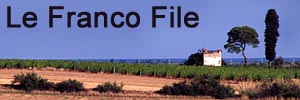It has been interesting listening to H talk about “in the DDR times”, when this eastern part of Germany was the GDR as we called it. We’d be driving with them along a road and he’d say, “in the DDR times there was accommodation for Russian soldiers here”. He seemed to remember his time working in the DDR fondly.
They were keen to show us around their main town of Altenburg, where they did used to live in a small flat overlooking the main square. We found a parking place and began a walk towards the town centre.
It seemed as though more than 50% of the shop units were empty. Some were still trading but many were not. There were some magnificent old pieces of architecture that were falling into disrepair, too. Altenburg was definitely a town in decline.
 H&G explained that since the reunification of Germany, many of the old former East German businesses had ceased trading mainly because they had been set up to supply Russian markets and those markets no longer existed, not to them, anyway. In essence, the financial rug had been yanked from beneath their feet. The population of Altenburg had been 60,000 but had now dropped to just 35,000. Most of those lost have been the younger people looking for work; the population is declining and aging, to boot. This is the no longer used and maybe no longer needed dancehall.
H&G explained that since the reunification of Germany, many of the old former East German businesses had ceased trading mainly because they had been set up to supply Russian markets and those markets no longer existed, not to them, anyway. In essence, the financial rug had been yanked from beneath their feet. The population of Altenburg had been 60,000 but had now dropped to just 35,000. Most of those lost have been the younger people looking for work; the population is declining and aging, to boot. This is the no longer used and maybe no longer needed dancehall.
 The main square of Altenburg was charming, nonetheless, and we popped into a local watering hole for some local water. Fortunately the Altenburg brewery is still working well; so well that it produced the best lager I’d yet tasted in Germany. Our table right up against the bar was a interesting curiosity, too.
The main square of Altenburg was charming, nonetheless, and we popped into a local watering hole for some local water. Fortunately the Altenburg brewery is still working well; so well that it produced the best lager I’d yet tasted in Germany. Our table right up against the bar was a interesting curiosity, too.
Another business that I was interested was just off the square in a side street. This was a senf [mustard] shop and I’m happy to report that this still seemed to be thriving, perhaps because the enterprising proprietor sold hot bratwurst which you could then slather in a huge array of different mustards varying to tame to fiery. Somehow I resisted the temptation of a bratwurst and we restricted our purchases to a bottle of mustard with horseradish.
 One business that had failed had been an historic hairdressing salon. It had been closed down in the 60s. Heirs of the family, wanting to sell the building, had opened up the salon and discovered a treasure trove of historic hairdressing equipment, dating from early in the 20th century, much of which resembled instruments of torture. The machinery certainly didn’t seem as though it would pass any health and safety inspections today. It is now run as a fascinating museum … and it has the benefit of being a small museum.
One business that had failed had been an historic hairdressing salon. It had been closed down in the 60s. Heirs of the family, wanting to sell the building, had opened up the salon and discovered a treasure trove of historic hairdressing equipment, dating from early in the 20th century, much of which resembled instruments of torture. The machinery certainly didn’t seem as though it would pass any health and safety inspections today. It is now run as a fascinating museum … and it has the benefit of being a small museum.
 In contrast to our walk around a rather saddened Altenburg, our personal guided tour around Erfurt had shown off a thriving town. It’s a university town with a large student population and, being the main town of the Thüringen region, receives a goodly amount of financial support. It was quite a stark contrast.
In contrast to our walk around a rather saddened Altenburg, our personal guided tour around Erfurt had shown off a thriving town. It’s a university town with a large student population and, being the main town of the Thüringen region, receives a goodly amount of financial support. It was quite a stark contrast.
Not everything was great “in the DDR times”, though. Our friends had mentioned being unable to travel abroad, for example. Sounding extraordinary, they also said that folks could put their name down for a car and then might wait 10 or 15 years to get one … whichever colour and limited brand choice might eventually become available.
On balance, they thought reunification had been beneficial, just not all rosy.

Leave a Reply